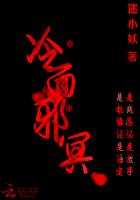Now the pleasure in aesthetic judgements stands on a similar footing: only that here it is merely contemplative and does not bring about an interest in the object; whereas in the moral judgement it is practical, The consciousness of mere formal finality in the play of the cognitive faculties of the subject attending a representation whereby an object is given, is the pleasure itself, because it involves a determining ground of the subject's activity in respect of the quickening of its cognitive powers, and thus an internal causality (which is final) in respect of cognition generally, but without being limited to a definite cognition, and consequently a mere form of the subjective finality of a representation in an aesthetic judgement.This pleasure is also in no way practical, neither resembling that form the pathological ground of agreeableness nor that from the intellectual ground of the represented good.But still it involves an inherent causality, that, namely, of preserving a continuance of the state of the representation itself and the active engagement of the cognitive powers without ulterior aim.We dwell on the contemplation of the beautiful because this contemplation strengthens and reproduces itself.The case is analogous (but analogous only) to the way we linger on a charm in the representation of an object which keeps arresting the attention, the mind all the while remaining passive.
SS 13.The pure judgement of taste is independent of charm and emotion.
Every interest vitiates the judgement of taste and robs it of its impartiality.This is especially so where, instead of, like the interest of reason, ****** finality take the lead of the lead of the feeling of pleasure, it grounds it upon this feeling-which is what always happens in aesthetic judgements upon anything so far as it gratifies or pains.Hence judgements so influenced can either lay no claim at all to a universally valid delight, or else must abate their claim in proportion as sensations of the kind in question enter into the determining grounds of taste.Taste that requires an added element of charm and emotion for its delight, not to speak of adopting this as the measure of its approval, has not yet emerged from barbarism.
And yet charms are frequently not alone ranked with beauty (which ought properly to be a question merely of the form) as supplementary to the aesthetic universal delight, but they have been accredited as intrinsic beauties, and consequently the matter of delight passed off for the form.This is a misconception which, like many others that have still an underlying element of truth, may be removed by a careful definition of these concepts.
A judgement of taste which is uninfluenced by charm or emotion (though these may be associated with the delight in the beautiful), and whose determining ground, therefore, is simply finality of form, is a pure judgement of taste.
SS 14 Exemplification.
Aesthetic, just like theoretical (logical) judgements, are divisible into empirical and pure.The first are those by which agreeableness or disagreeableness, the second those by which beauty is predicated of an object or its mode of representation.The former are judgements of sense (material aesthetic judgements), the latter (as formal) alone judgements of taste proper.
A judgement of taste, therefore, is only pure so far as its determining ground is tainted with no merely empirical delight.But such a taint is always present where charm or emotion have a share in the judgement by which something is to be described as beautiful.
Here now there is a recrudescence of a number of specious pleas that go the length of putting forward the case that charm is not merely a necessary ingredient of beauty, but is even of itself sufficient to merit the name of beautiful.A mere colour, such as the green of a plot of grass, or a mere tone (as distinguished from sound or noise), like that of a violin, is described by most people as in itself beautiful, notwithstanding the fact that both seem to depend merely on the matter of the representations in other words, simply on sensation-which only entitles them to be called agreeable.But it will at the same time be observed that sensations of colour as well as of tone are only entitled to be immediately regarded as beautiful where, in either case, they are pure.This is a determination which at once goes to their form, and it is the only one which these representations possess that admits with certainty of being universally communicated.For it is not to be assumed that even the quality of the sensations agrees in all subjects, and we can hardly take it for granted that the agreeableness of a colour, or of the tone of a musical instrument, which we judge to be preferable to that of another, is given a like preference in the estimate of every one.
Assuming vibrations vibration sound, and, what is most important, that the mind not alone perceives by sense their effect in stimulating the organs, but also, by reflection, the regular play of the impressions (and consequently the form in which different representations are united)-which I, still, in no way doubt-then colour and tone would not be mere sensations.They would be nothing short of formal determinations of the unity of a manifold of sensations, and in that case could even be ranked as intrinsic beauties.
But the purity of a ****** mode of sensation means that its uniformity is not disturbed or broken by any foreign sensation.It belongs merely to the form; for abstraction may there be made from the quality of the mode of such sensation (what colour or tone, if any, it represents).For this reason, all ****** colours are regarded as beautiful so far as pure.Composite colours have not this advantage, because, not being ******, there is no standard for estimating whether they should be called pure or impure.













